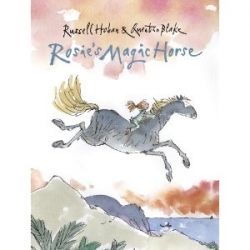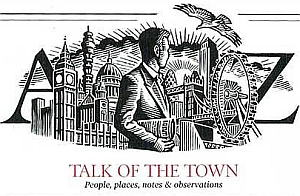National Gallery
(Angelica’s Grotto, Mr Rinyo-Clacton's Offer)
I’d been to the National Gallery on several occasions before but have always tended to make the classic mistake of trying to see too much in one go, so today it was good to know I only wanted to see two or three exhibits before leaving for my next stop. I used Hoban’s directions from the book to the relevant rooms and found the paintings hadn’t moved since Harold Klein visited in the late 1990s. A Small Dutch Vessel was in a temporary room while some building work was being done: on one side were great rows of mostly quite small canvases lined up quite unceremoniously, as if at a viewing for an auction, while on the other side of the room some painting and decorating equipment stood about like some risible visual pun by Damien Hirst. The harsh lighting wasn’t too sympathetic either but I found the canvas alright, which was as tiny as Klein describes and as full of action. I bet Willem Van de Velde the Younger never thought his painting would have inspired a novel like Angelica’s Grotto. Around the corner two uniformed curators were hovering but I managed to leave the quotation folded in half hanging over the barrier rope directly in front of the painting without being seen.
I crept back upstairs to look for the Claudes which both Sarah Varley from The Bat Tattoo and Peter Diggs from Amaryllis Night and Day admired, as well as Samuel van Hoogstraten’s Peepshow, mentioned at least once in Hoban’s books. However, instead I found myself face to face with some Rubens bottoms (not an unpleasant surprise, let’s face it), in the form of The Judgment of Paris. Three naked women, their backs to the viewer and their ample derrières on proud display, were looking hopefully towards a couple of fully-dressed men, one of whom was pointing at one of the women. In an otherwise quite Constable-esque sky the Fury, Alecto, grimaced, presaging war; cherchez la femme, as they say.
The Claudes were in the next room. Seaport with the Embarkation of Saint Ursula was the one that caught my eye: a magnificent painting of three ships being prepared for departure at sunrise as little knots of women stood around looking ambivalent and pensive. At first I thought they were watching their menfolk depart, and their attitude derived as much from contemplation of the likely dullness of their lives on land while their men had a whale of a time elsewhere as from their fear that they might never seen them again. Of course then I read the story and found I was wrong about the men aspect, but there you go. The perspective, the colour of the sky and the detail of the ships gave a fantastic sense of distance and adventure; it made me want to jump aboard and set sail for unknown shores myself, and I probably would have done if I hadn’t been married, had sore feet and no stomach for sea-travel.
The Peepshow with Views of the Interior of a Dutch House was also nearby. This was a delightful thing, a box with two peepholes, each showing a different perspective of the inside of a house. The attention to detail was astonishing, from the different floor tile patterns in the different rooms, to the cloaks hanging up on the wall, to the sunlight slanting in from the windows, to the view right out of the back door and into the town. There were even paintings on the wall of this painting which were themselves incredibly detailed. My favourite thing about the room from this perspective was "Hendryk" (as Mr Rinyo-Clacton's Offer's protagonist Jonathan Fitch named him), the cocker spaniel sitting on the floor looking directly into my eyes with his own wet brown eyes, in just the puzzled way dogs do. Looking into the house through the opposite peephole however, the dog had disappeared, while in the “distance” was an open door into a bedroom and the nose and eyes of its sleeping resident peeping over the 17th-century duvet. The whole thing took Samuel van Hoogstraten five years to complete, and to think of his patience and steadiness-of-hand was as mind-boggling as it was pleasurable to wonder at the degree of absorption in the work he must have felt.
On my way out I went to the shop and bought two postcards of the two different views of the van Hoogstraten Peepshow together with a blown-up detail of the dog, and one each of The Judgment of Paris and the Claude Seaport. I also bought the latest in a long line of cards of Velazquez’s Rokeby Venus, not referenced in Hoban but whose bottom I contend gives Rubens a run for his money (Venus’s bottom, I mean, not Hoban’s). There wasn’t a postcard of A Small Dutch Vessel, but to make up for this I bought one of Constable’s Cenotaph to Reynolds' Memory, Coleorton for the Riddley Walkeresque stag. I was served by a small, dark-haired woodland-type woman of European extraction whose name, according to the receipt she gave me with the postcards, was Naira.







 On 4 February 2012 the Slickman A4 Quotation Event celebrated
On 4 February 2012 the Slickman A4 Quotation Event celebrated 


 In 2005 the first international convention for Russell Hoban fans took place in London, and was marked by the publication of a fantastic 48-page booklet featuring exclusive contributions from innumerable fans and associates including novelist David Mitchell and actress Glenda Jackson. A wonderful memento of the event, it's also a beautiful collector's item and must-have for any Hoban fan. Although in limited supply, copies of the booklet are still available at £6.00 each plus p&p. Order direct from
In 2005 the first international convention for Russell Hoban fans took place in London, and was marked by the publication of a fantastic 48-page booklet featuring exclusive contributions from innumerable fans and associates including novelist David Mitchell and actress Glenda Jackson. A wonderful memento of the event, it's also a beautiful collector's item and must-have for any Hoban fan. Although in limited supply, copies of the booklet are still available at £6.00 each plus p&p. Order direct from  Russell Hoban turned 86 on 4 February 2011 and fans celebrated in traditional style by leaving quotes from his books in public places. Browse their quotes
Russell Hoban turned 86 on 4 February 2011 and fans celebrated in traditional style by leaving quotes from his books in public places. Browse their quotes  To celebrate 30 years in print of Russell Hoban's most famous novel
To celebrate 30 years in print of Russell Hoban's most famous novel 






No comments:
Post a Comment
Note: only a member of this blog may post a comment.